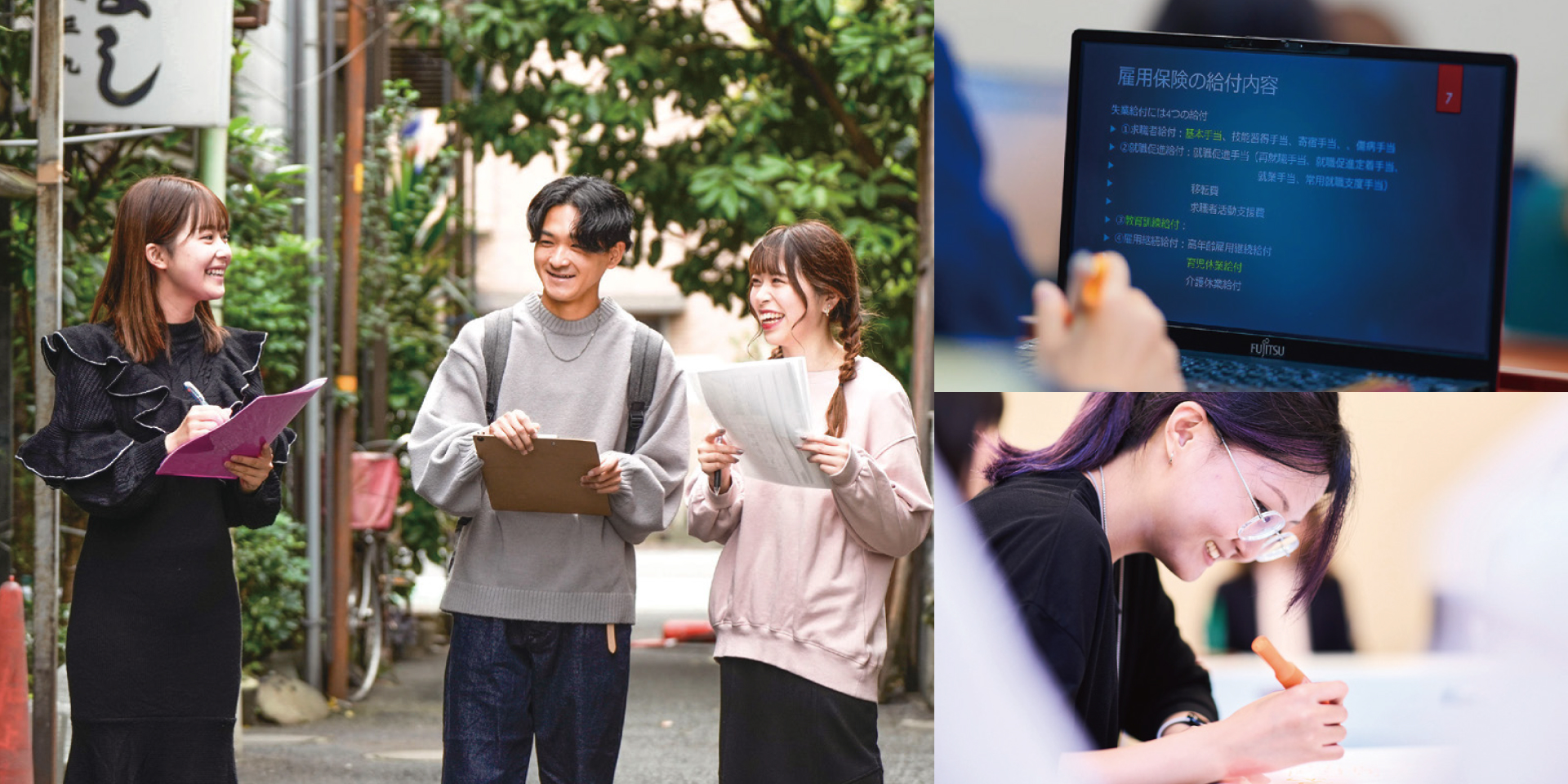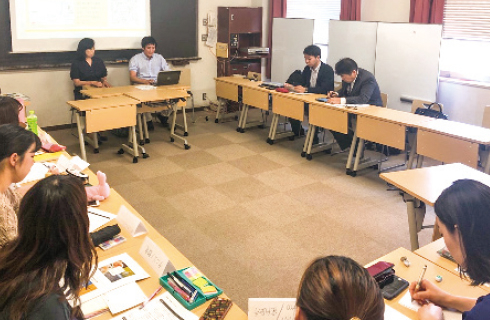Department of Social Work
Department of Sociology
Department of Social Work

Learning about social work for a new era via two future-oriented courses
Social work plays an increasingly important role in contemporary society, which values diversity and respect for the individual. Students in the Department of Social Work approach the experiences of those who are discriminated against or oppressed from the perspectives of human rights and social justice. They analyze the social structures that make life difficult for such individuals and learn how to bring about change in individuals, communities, and society to resolve these issues.
Department of Social Work
Key Features of the Department of Sociology
Program Structure
Topics
Admission Policy
Key Features of the Department of Social Work
Point 01
Education in a department proud of its history and traditions
The Department of Social Work was established at a very early stage in Japan as a department specializing in social services. For nearly a century, the Department has produced many practitioners in the fields of welfare and government, and has contributed to the development of social welfare in Japan. Students benefit from internships and practical training supported by alumni who play an active role in a diverse range of welfare fields.
Point 02
Two courses of education open up career paths
Students choose which course they will join after admission to the University. The Social-work Course prepares students to obtain national licensure as certified social workers or mental health workers and to become professionals in the field. The Welfare Development Course focuses on NPO and corporate social contributions, well-being, international assistance, and multicultural coexistence. Students in the Welfare Development Course can obtain teaching licenses for special-needs schools and/or general junior and senior high schools.
Point 03
Addressing global and local social issues
The Department approach emerging social issues that are now attracting a lot of attention, such as multicultural coexistence, international assistance, and support for young people facing challenges such as hikikomori (social withdrawal), isolation, and educational disengagement, and explore ways to promote understanding of the people concerned while also providing them with support.
Point 04
An abundant array of practical courses
The Department of Social Work offers more practical courses than any other department. These include practical training in social work, welfare development fieldwork, field studies (in South Korea), practical social welfare research, internships unique to our department, and practical training in education. In each of these programs, students reflect on the issue of self-reliance and assistance with supporters and stakeholders, visiting innovative activists and organizations to learn about the values that drive these initiatives.
Program Structure
In their first year, students study how people connect with society and basic approaches to this subject. In their second year, students choose between the Social-work Course and Welfare Development Course, setting the direction of their studies. From that point, they engage directly with people and society through such means as practical training, fieldwork, and overseas field study, and choose specialized seminars with an eye to their career path after graduation.
Topics
Internship
Students participate in internships at companies that proactively employ people with disabilities or NPOs and social enterprises that address social problems, after which they report on their research.They hone practical skills that will enable them to contribute to an inclusive society.

International Welfare Theory1, 2
International Welfare Theory 1 focuses on Europe, while International Welfare Theory 2 focuses on developing countries and foreigners living in Japan. In both courses, students learn about social work and multicultural societies to acquire “glocal” knowledge and perspectives.
